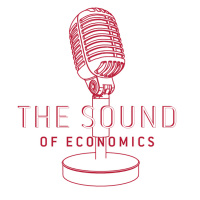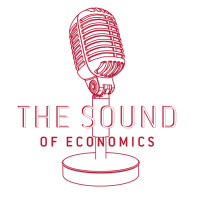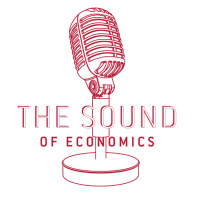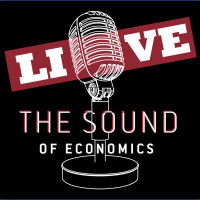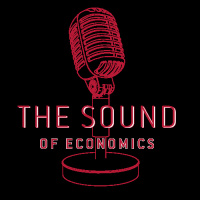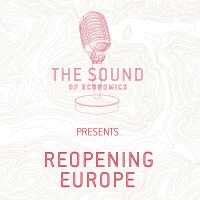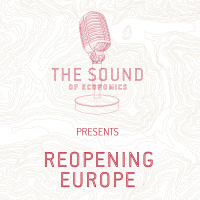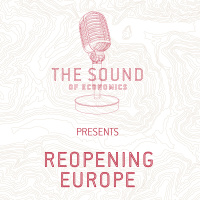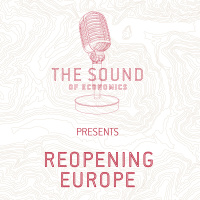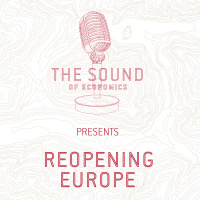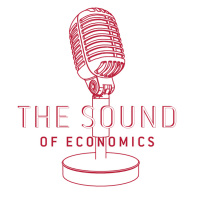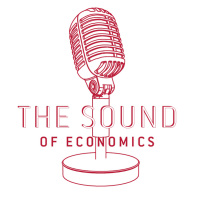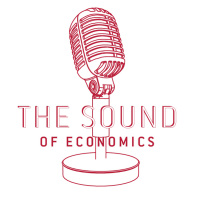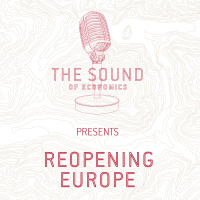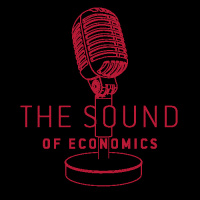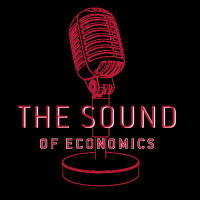Sinopsis
Bruegel is the European think tank working in the field of international economics. Established in 2005, Bruegel is independent and non-doctrinal. It seeks to contribute to European and global economic policy-making through open, fact-based and policy-relevant research, analysis and debate.
Episodios
-
Without good governance EU recovery could fail
07/10/2020 Duración: 23minThe European Union recovery fund could greatly increase the stability of the bloc and its monetary union. But the fund needs clearer objectives, sustainable growth criteria and close monitoring so that spending achieves its goals and is free of corruption. In finalising the fund, the EU should take the time to design a strong governance mechanism. In this episode, Guntram Wolff, director of Bruegel, is joined by MEP Luis Garicano, vice president of Renew Europe, who is also an economist and was heavily involved in the discussion on Next Generation EU, the new recovery instrument that the EU proposed for the Recovery and Resilience Facility. On this topic, they discuss the key concerns on how to ensure EU-borrowed money will be well-spent by the member states. MEP Garicano shares his insights from the Parliament of where this debate currently stands. Read the Opinion of Guntram wolff on the topic: https://www.bruegel.org/2020/09/without-good-governance-the-eu-borrowing-mechanism-to-boost-the-recovery-coul
-
The Future of Globalisation
30/09/2020 Duración: 01h01minIn this episode, we propose a full lecture about the future of globalisation by Dani Rodrik, Professor of International Political Economy, at the John F. Kennedy School of Government, of Harvard University. Rodrik argues that the model of hyper globalization we have been pursuing is unsustainable and that we have an opportunity to embark on a sounder, healthier globalisation. And he outlines his views on what such a globalisation might look like. The Lecture took place during the Bruegel Annual Meetings and it was followed by a lively discussion between Dani Rodrik and André Sapir, who is a Senior Fellow at Bruegel, which we have recorded and included in this podcast.
-
Global Energy Fundamentals
23/09/2020 Duración: 33minAs we move away from fossil fuels and toward clean energy solutions, the complexity of the global energy system has increased. With his new book published by Cambridge University Press, Global Energy Fundamentals, Simone Tagliapietra cuts through this complexity with a multidisciplinary perspective of the system, which encompasses economics, geopolitics, and basic technology. In this episode of The Sound of Economics Guntram Wolff, director of Bruegel, discusses with the author the current status and future prospects of the global energy system.
-
The State of the Union going forward
16/09/2020 Duración: 57minOn 16 September 2020 Ursula von der Leyen, President of the European Commission, delivered her first State of the Union address before the European Parliament. In addition to looking back at the past year, she presented the priorities for the year ahead, focusing on initiatives such as the European Green Deal and the Digital Strategy. A conversation between: Giuseppe Porcaro, Head of Outreach and Governance, Bruegel Alicia García-Herrero, Senior Fellow, Bruegel André Sapir, Senior Fellow Guntram B. Wolff, Director
-
For a better, more sovereign Europe
09/09/2020 Duración: 52minThis is part of a special feature of the Sound of Economics reporting highlights from Bruegel Annual Meetings, which happened between 1 and 3 September 2020. Usually physically gathering hundreds of people in Brussels every year, the Annual Meetings are the flagship event of Bruegel. This year, due to the pandemic, we held the event entirely online. For this episode of the Sound of Economics we report the full speech delivered on 3 September by the Minister of Finance of Germany, Olaf Scholz, touching upon the key issues Europe is facing for its economic recovery and its own sovereignty in a complex global setting. After the speech you will be able to follow as well a lively conversation Between the Minister, Guntram Wolff, director of Bruegel, and Maria Demertzis. more information about Bruegel Annual Meetings on www.bam.bruegel.org
-
REOPENING EUROPE - Reopening Future?
19/08/2020 Duración: 43minThis is the last episode of the summer feature of the Sound of Economics recorded as part of the Reopening Europe project. Between the 12th and the 27th of June, we traveled over 2700 kilometres through the Netherlands, Germany, France, Austria, Slovenia and Italy to collect voices from the ground during the weeks when the borders were reopening after the COVID-19 spring lockdown. Since the start of summer, the pandemic has continued to ravage the globe, and in Europe we are currently seeing a resurgence of infections. The next few months continue to be uncertain in terms of medical and economic consequences. Given this context, the Reopening Europe project assumes additional layers: documenting the seemingly ephemeral moment of the summer reopenings, and reflecting about the hopes and wishes of Europeans at a unique moment. That is why, in this concluding episode of this feature, we reflect about the future. Not as an escapist wishful thinking, but as an attempt to start re-imagining a society, a
-
REOPENING EUROPE - Reopening Common Good?
12/08/2020 Duración: 44minOn the fourth episode of this summer series of The Sound of Economics, recorded on the road as part of the Reopening Europe project, we talk with Antje von Dewitz, CEO of the outdoor equipment company- Vaude. We met her on June 17th in Tettnang, near Lake Konstanz, on the German/Swiss border, where her family company is located. The Reopening Europe team was the first external visitor’s group to be admitted at the company headquarters after lockdown. Antje told Giuseppe about the effect of COVID-19 on her company, on retailers and consumer behaviour, and she told us of her vision for a post-pandemic economy which should work for the common good.
-
REOPENING EUROPE - Reopening Tourism?
05/08/2020 Duración: 33minThe OECD has estimated that COVID-19 will cause a 60% decline in international tourism in 2020. This could rise to 80% if recovery is delayed until December. During their trip, the Reopening Europe team noticed the direct impact of the lockdown on cities such as Strasbourg or Salzburg, which were practically devoid of the usual tourist crowds. In this latest installment of our summer series on Reopening Europe's trip across Europe at a unique moment, Giuseppe is in conversation with Ivo Tarantino, Head of Public Affairs & Media Relations at Altroconsumo, the largest independent and non-party political consumers’ organisation in Italy. They hear contributions from- Leone, a Gondolier in Venice; Nives Monda, restaurant owner in the historic centre of Naples; Emilio Casalini, journalist and writer; Elvio De Monte, architect in Venice; Jeannette Neumann, Bloomberg correspondent in Madrid.
-
REOPENING EUROPE - Reopening Borders?
29/07/2020 Duración: 34minIn June 2020, as Europe reopened after lockdown, we crossed ten national borders. We listened to diverse citizens, from passers-by to politicians, business people to artists, recording, documenting, and publishing stories. In this second episode of Reopening Europe, we unpack some reflections about borders and the pandemic which we have collected along our journey. Giuseppe Porcaro is joined in by Martina Tazzioli, Lecturer in Politics and Technology at Goldsmith University, London. Her work is characterised by an interdisciplinary approach to political theory, migration and border studies and political geography. Recently, she has investigated the technologisation of the borders and how technologies constitute a battlefield for migrants, states and non-state actors. They hear contributions from- Felies Zomerplaag, a high school student in Meerssen, a few kilometres from the Belgian/Dutch Border; Djuna Bernard, Member of the Luxembourgish Parliament; Stephan Halbach, the CEO and owner of Klenke, a
-
REOPENING EUROPE - Reopening Governance?
23/07/2020 Duración: 31minThis is a summer feature of the Sound of Economics in cooperation with the Reopening Europe project. In June 2020, as Europe exited the COVID-19 Lockdown, we traveled more than 2700 kilometres through the Netherlands, Germany, France, Austria, Slovenia and Italy to collect voices from the ground as the borders were reopening. In this introductory episode, Giuseppe Porcaro chats with Michael Leigh. Their conversation was recorded in Florence on the 23rd of June. Michael is a Bruegel Senior Fellow and also Academic Director of the Masters in European Public Policy at the John Hopkins University in Bologna. Michael told him about his experience locally in Bologna and they discussed the impact of the pandemic on various levels of government and the future of Europe. Giuseppe gave Michael some insight about the journey and reveals which border was the only one on the trip where the crew were asked to produce papers.
-
The benefits of the single market - the case of last enlargement
15/07/2020 Duración: 26minAs the Brexit negotiations are entering their final straight line, the question of trade agreements is heating up. Economists talk about the “cost of non Europe”. How much each country has gained from belonging to the EU’s single market? How much would it have missed out on if it didn’t belong to the single market? In this week’s episode, we will look at the economic impact of the EU's last enlargement and ask who benefited the most: the old 15 or the new 13 members?
-
S6: Apps without borders? How COVID-19 apps show the limits of the EU digital single market
09/07/2020 Duración: 25minIn their toolkit against a pandemic that knows no borders, several EU countries have bet on new technology from our era of globalisation: digital contact tracing COVID-19 apps. But the way they've been rolled out illustrate troublesome limits to the EU digital single market.
-
S6: Financial fragility after #COVID19
02/07/2020 Duración: 28minIn this episode we discuss financial fragility in European households in the time of COVID-19. Before the pandemic hit, a substantial share of households reported that they would be unable to handle a financial emergency. In some EU countries, many had savings equivalent to just a few weeks of basic consumption. Giuseppe is joined by Maria Demertzis, deputy director at Bruegel, and Anna Maria Lusardi, Academic Director of the George Washington University Global Financial Literacy Excellence Center who have authored a paper published by Bruegel on the topic What did they find out, about how households finances have been impacted by the pandemic so far? Episode's guests: Maria Demertzis, Deputy Director, Bruegel Anna Maria Lusardi, Academic Director of the George Washington University Global Financial Literacy Excellence Center Hosted by: Giuseppe Porcaro, head of outreach and governance at Bruegel
-
S6: Redefining Europe’s role after the Covid-19 Pandemic
25/06/2020 Duración: 01h05minIn a special live edition podcast of an event we organised recently with EU3D, we discuss how the current situation brought upon by the pandemic could shift the ‘Conference on the Future of Europe’ debate, whether EU treaty changes are back on on the agenda and what this would imply for the relation of the EU with its closely affiliated non-members. Guntram Wolff is joined by Gabriele Bischoff, Member of the European Parliament, John Erik Fossum, Professor at the ARENA Centre for European Studies, University of Oslo and EU3D coordinator Kalypso Nicolaïdis.
-
S6: One rule to ring them all? Europe's financial markets after Brexit
19/06/2020 Duración: 26minThe response to COVID crisis necessitates a lot of cash. So will the upcoming green transition. But with Brexit, Europe lost its easy and practical access to the world’s largest financial market. So is today the right time to create a European capital markets union, with only one rule to ring them all; one rule to bind all 27 capital markets in the EU?
-
S6: Reopening: Europe
11/06/2020 Duración: 33minSince the end of May and throughout the month of June, many European Countries have lifted or loosened the lockdown measures set in place to fight the spread of the virus. One of the last measures still in place is the closure of international borders, which to some extent brought back to the memory a closed Europe, and border checkpoints, which many of our listeners that born after 1989 probably bene experienced, at least on the scale we have had. As this is somewhat an atypical and historical moment, we are going to embark in a peculiar journey, starting on Friday 12 June. Bruegel is supporting a project driving across 7 Countries and more that 2.500 kilometres to collect facts about how the border closure affected the economy and society, take a “temperature reading” of the perceptions of people, and make an analysis out of it. It is an exciting endeavour that sees Bruegel on the road, after these months of lockdown and countless zoom livestreams. It will provide a snapshot of the impact on the gr
-
S6: Will COVID-19 boost the euro as a global currency?
05/06/2020 Duración: 25minThe euro is, by definition an international currency. However, since being established in the late 90s the single currency has always been somewhat less than the sum of it's parts and has yet to challenge the US dollar for global dominance. Its international status declined with the euro crisis of 2008. Could the reform of the institutional setup of the monetary union that many are arguing for in the wake of the covid-19 crisis boost the euro's status as a global currency? Episode guests: Guntram Wolff, Bruegel Director Alicia Garcia Herrero, senior fellow at Bruegel Grégory Claeys, senior fellow at Bruegel Hosted by: Giuseppe Porcaro, head of outreach and governance at Bruegel
-
COVID-19’s shock for emerging economies
29/05/2020 Duración: 35minThe pandemic is hurting emerging economies in at least three ways: by locking down their populations, damaging their export earnings and deterring foreign capital. Even if the pandemic will fade in the second half of the year, gdp in developing countries, measured at purchasing-power parity, will be 6.6% smaller in 2020 than the IMF had forecast in October. In this episode we dig into the topic and sketch the possible tools that emerging economies can use to face the liquidity crisis. The conversation presents the analysis of the authors of a Bruegel Policy Contribution the topic. Episode's guests: Alicia Garcia Herrero, senior fellow at Bruegel Elina Ribakova, deputy chief economist of the Institute for International Finance Hosted by: Giuseppe Porcaro, head of outreach and governance at Bruegel
-
China’s financial system: opening up and system risk
22/05/2020 Duración: 39minChina’s financial sector has grown massively in size and has become systemically important. In addition, it has also become much more complex with increasing systemic risk. The cyclical -beyond the structural – deceleration that the Chinese economy is undergoing is one of the key risks that the Chinese financial system is facing. At the same time, China has decided to open up its financial sector to foreign competition. What can foreign banks expect to find? Should they grab this opportunity? Giuseppe Pocarro is joined by independent economist Gary Liu and Bruegel Senior Fellow, Alicia García-Herrero.
-
Singapore's experience in dealing with COVID-19
19/05/2020 Duración: 45minFaced with the COVID-19 outbreak, governments have needed to act swiftly to combat the virus. Many countries currently have lockdown or measures alike in place. Yet, different countries approach the crisis in a noticeably different way. Dr. Vivian Balakrishnan, Minister for Foreign Affairs of the Republic of Singapore, join this live podcast recording and explain Singapore’s approach and the various measures taken in dealing with the COVID-19 pandemic.

